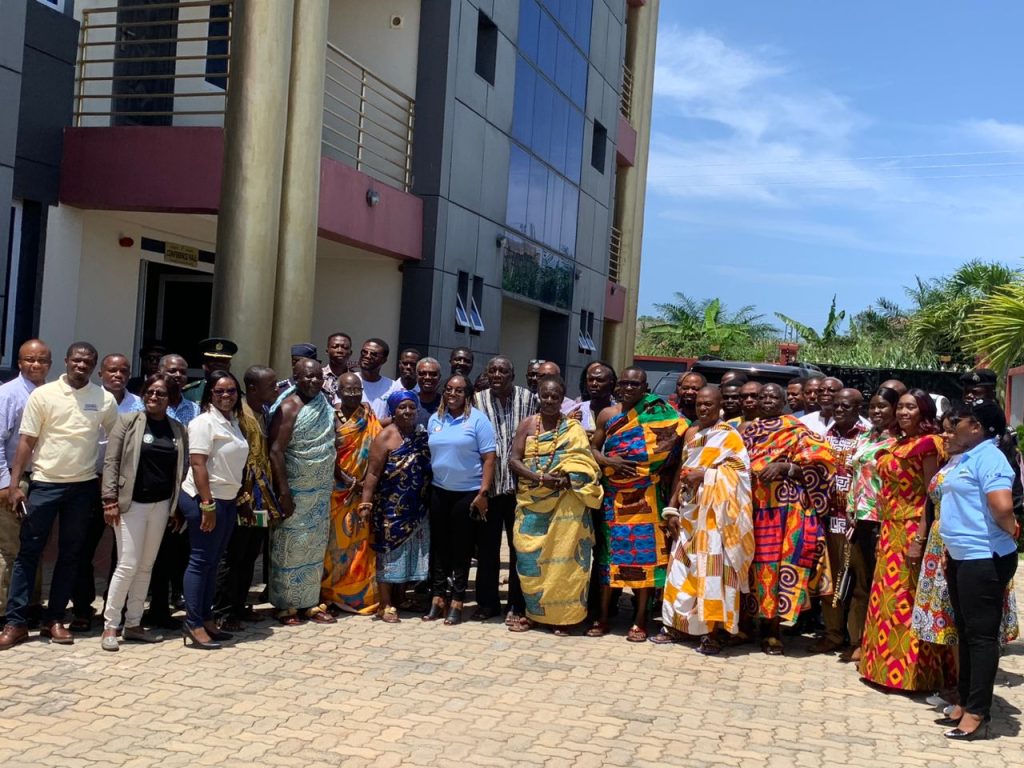By Mildred Siabi-Mensah
Apowa (WR), May 05, GNA – The Ministry of Roads and Highways have consulted traditional authorities and other relevant agencies and organisations in the Western Region on the proposed Abidjan-Lagos Corridor Highway Development Project.
The highway project, envisioned by the ECOWAS Commission would link five countries: Nigeria, Benin, Togo, Ghana and Cote d’Ivoire to promote economic integration, growth while, enhancing free movement among the member countries of the ECOWAS.
The highway, spanning a length of about 1028 kilometres would run through the major economic centres of the five countries and would make way for bypasses, overpasses and interchanges to ensure the maximum safety of communities along such significant international project.
Mrs. Rita Ohene Safo, the Project Director and Head of the Policy, Planning and Budget of the Ministry of Roads and Highways told participants that the engagement was to enlighten key stakeholders on the proposed project, solicit their support for the smooth implementation and particularly request the traditional authorities to release lands for the Right of Way from each affected community.
She said, already, the African Development Bank with support from the European Union had set aside a seed capital while, all five countries are expected to contribute some one million dollars, “we are still seeking investor support to enable some work to start probably the latter part of 2024.”
She said the highway, with a three -lane and dual carriageway had components such as feasibility and detailed engineering, road safety Audit, PPP Structuring and Transaction Advisory Audit and a Management Authority to aid in the realization of the tenets of the proposed project.

In the meantime, participants expressed concern for rail development as against road network where heavy trucks had always shortened it lifespan, they also called on assemblies to work with their laws on spatial development to avoid uncontrolled development.
Nana Kobena Nketiah V, the Omanhene of Essikado Traditional Area, noted the need for the project implementing unit to consult with the National Development Planning Commission.
He said the country was in need of a focused and detailed plan to shape the future development aspirations and fortunes of generations to come.
Obrempong Himaa Dekyi, the Omanhene of Lower Dixcove, prayed that much attention would be given to the revival of the Rail systems in the country.
Other concerns were the need for the assemblies to revert to the name: Town and Country Planning as against Physical Planning Unit to remind officers to uphold proper development in communities and towns.
Awulae Attibrukusu, the Omanhene of Axim was not happy with the unauthorized erection of rumps on many Highways in the country by Community members which was rather increasing the spate of crashes on the road.
Currently, Ghana has over 11,000 speed rumps with many being unauthorized and Community initiated.
GNA